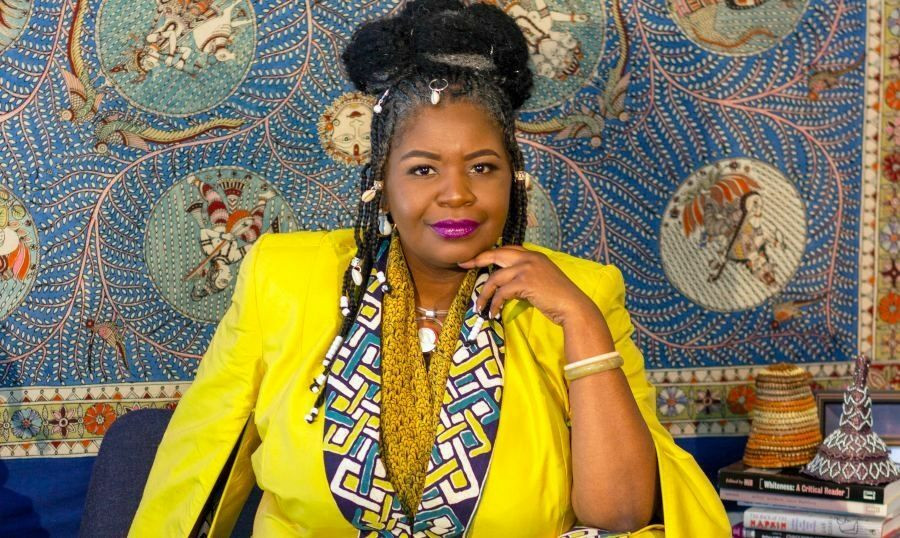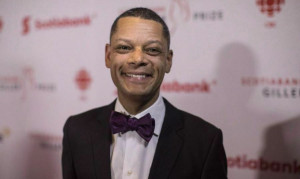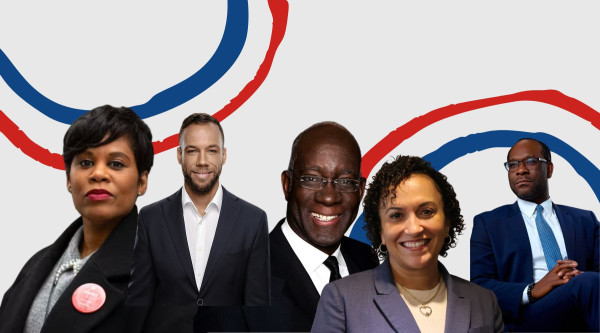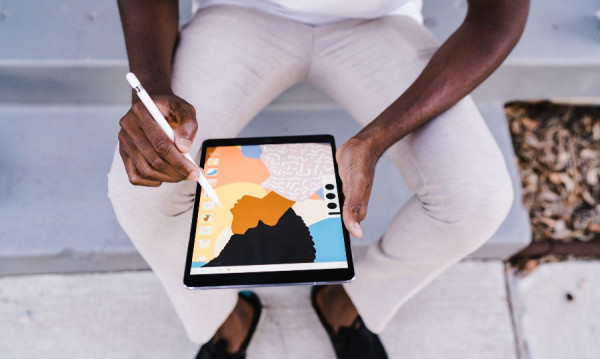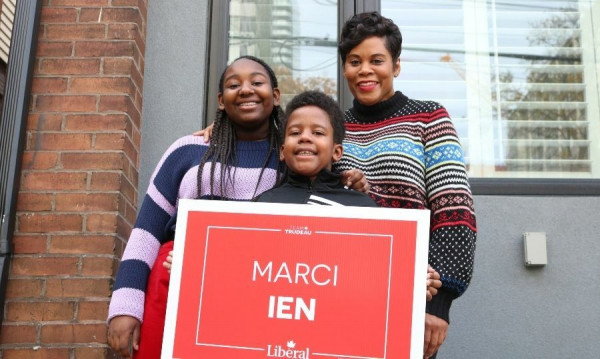Marci: What is a design anthropologist?
Dori: What I look at is the relationship between the values that we have as people, how they are translated into designs (all the objects, interactions, environments, all the things that we make), and then how people experience those values through the things that we make. If we are focused on decolonization, then those things need to be put into action through something that gets designed. For example – if you want to design a space to show you have Indigenous representation, people need to see Indigeneity somehow embedded in the space, the interactions or the graphics; and then, you evaluate whether people are feeling it. Things are made real and tangible to people through the things that we design.
Marci: When the word *first* precedes your title there are challenges that come with that because you are trailblazing. What have you experienced?
Dori: Part of my job is teaching the university how to interact and engage with a Black woman in a position of power and influence. A lot of times, I receive the first level of a lot of institutional racism. I have to be the one to speak and explain what that experience is so that the institution can change based on me being in the room where decisions get made. I create a lot of anxiety because my perspective on things are quite different based on my lived experience. But I also use that difference to push the institution in ways that they were not even aware of. I open up the possibilities of moving in these directions, because they did not have anyone until now with my kind of lived experience to be able to say what impact this decision has, both positive and negative, if you approach things in a different way based on those experiences.
Marci: I want to know more about this. Can you share a specific experience?
Dori: Well when I first came on board, I was trying to encourage the institution to promote that I was the first Black and Black female Dean of the Faculty of Design. There was a little bit of incredulity about that. It was something that they did not want to include when they were promoting me. So I had to have a conversation with the institution to say, ‘You don't understand what you're doing by not recognizing this, especially in terms of how it hurts me because I've done extensive research to make sure this is factual. By not accepting this research, you are not accepting my capabilities as a researcher and that's my background, that's what I do. By not promoting it, you limit the opportunity for me to connect to others who are Black and to make it clear to the Black community with whom I'm engaged, that this is a big deal.’ Eventually, I kinda went rogue and spoke to a journalist in Now Toronto and my story got picked up. Since the response was positive, the University decided it was fine to mention it.
Marci: So in essence, you're reporting your own micro and macro aggressions.
Dori: Yes. Every day. Part of it is being brave enough and trusting the institution, to say, this is extremely hurtful and here is the reason why. Then these are some of the things institutionally that we need to do to be able to address it. Because if it's affecting me at this level of power--I’m not the most vulnerable person in the institution, so it will affect those who are more vulnerable and precarious in a greater way. So let's address it now so we protect those who are more vulnerable.
Marci: How important is mentorship? How important is it to you that you lift as you rise?
Dori: That’s my whole purpose. I mentor a lot of people but I've also been mentored as well. You don't get to be the first Black Dean of a Faculty of Design if you don't have mentors giving you a sneak preview into the kind of things you might experience when you get into a room you haven’t had access to before. There are people whom I mentor in terms of saying, this is what it means to be in the room. These are the kinds of things you're going to experience. Sometimes it's difficult, but you have to focus on the fact that by being in the room you make decisions differently than what would be if you weren't there. So you have to make sure you are centred. As well--if I do an article or promo--I’m always showcasing my students. I recently did a magazine article for A/D/O and I insisted that the photographer had to be one of my students. Nika Thompson’s photoshoot with me was her first professional gig. I make sure I use my platform and use my access to open doors for others.
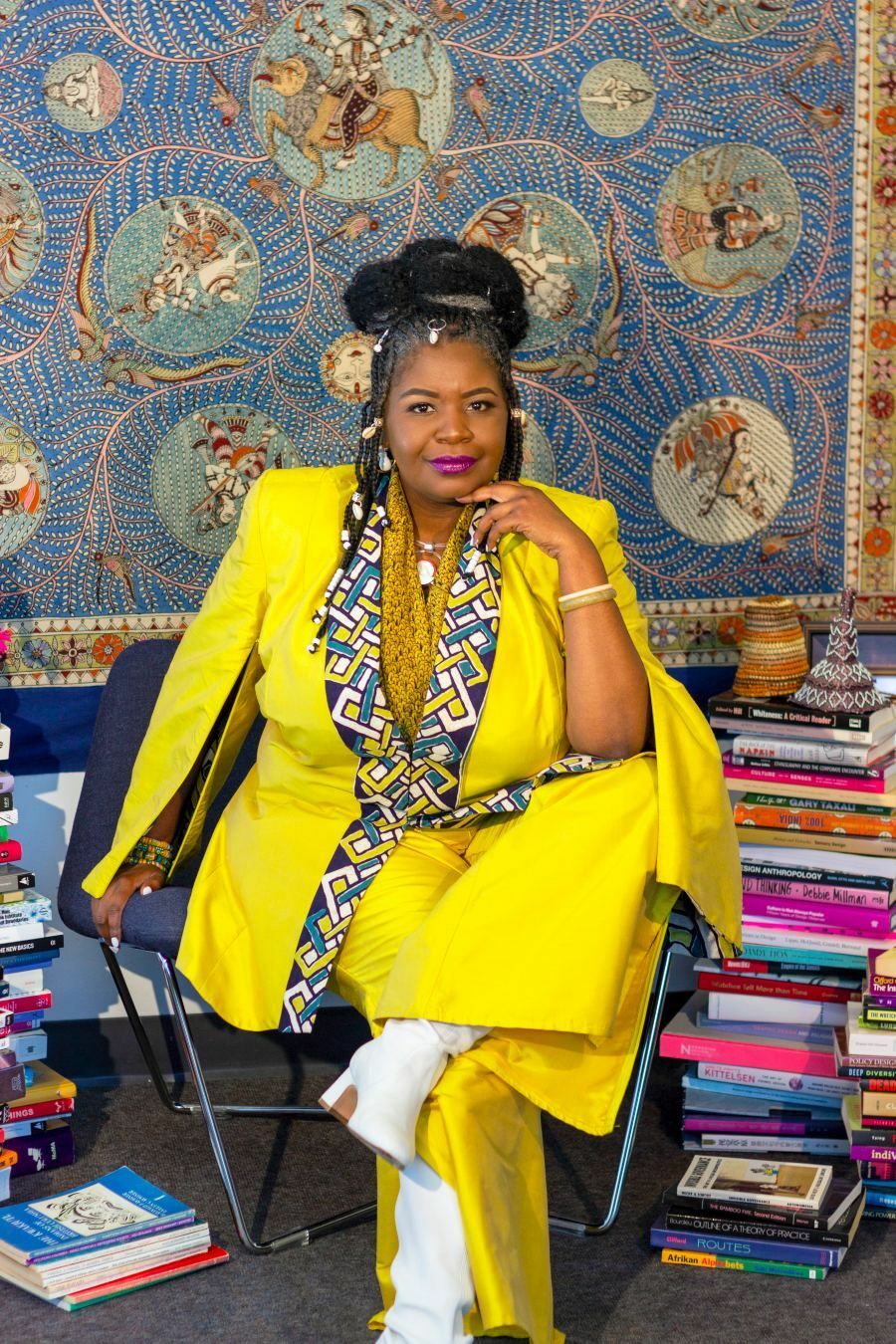
PHOTO CREDIT: Nika Thompson
Marci: Tell me about the Blackreach Program.
Dori: This is the program for 8-12-year-old Black youth. It's about Black alumni, design professionals, and design faculty being that voice that says to Black youth that you can do it! Reports show that already at 8-12 years old, young Black creative people are being told that “you can't do anything with your creativity” or that “you can't take this idea and make it real and tangible in the world and so go do something else.” Our hope is that through Blackreach, when someone tries to tell them that they will say “I saw all these professional designers who were making a living out of this, so I think I'm going to go forward to try and use my creativity to have an impact on my community.” This is because we've given them that 3-hour experience of what it means to do that. And we've shown them the kinds of people they can be. Here's Hannah Beachler. In the movie Black Panther, she's the one who designed that whole world of Wakanda. In Dolemite Is My Name, Ruth Carter designed every costume.
Mentorship is so important to the Black Youth Design Initiative. We are setting up structures so that Black youth receive mentorship: Elders supporting students and recent post-secondary graduates; students supporting primary and secondary school youth. Blackreach for 8-12 years old, the Summer Design Intensive for 7th and 8th graders, STEAM + D learning modules and Portfolio Workshops for high schoolers, and Entrepreneurship programs for post-secondary students and recent graduates—these are all part of an intergenerational platform to build in structures of Black mentorship in design.
It's a way for them to think about all these design skills they are learning and how to apply it in such a way that it actually benefits the Black community. We talk a lot about what does it mean to design for us and by us in terms of creating a whole new world.
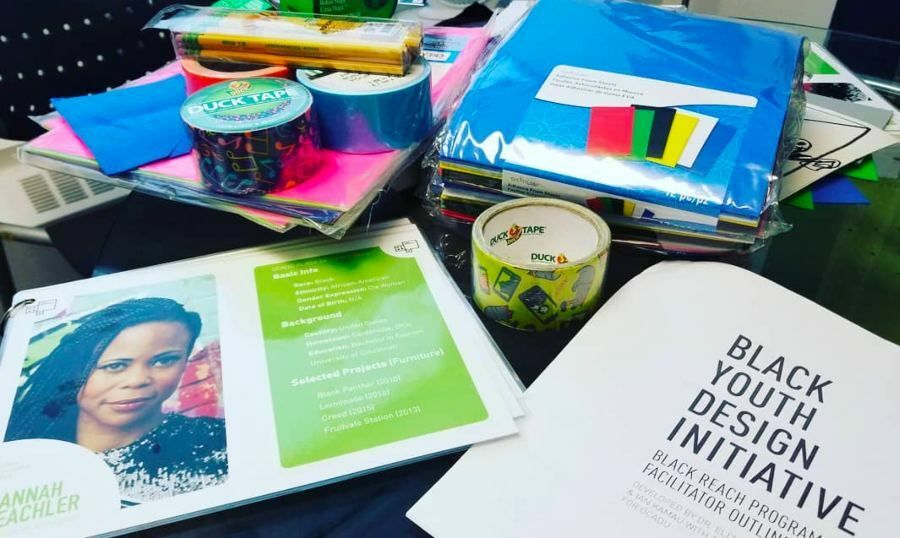
PHOTO CREDIT: Dori Tunstall
Marci: People may only see design through a narrow lense. You see things differently. You see design as a democratic tool. How do the two come together?
Dori: Democracy is a human value that we only experience through the things that get designed. For example, we experience it in a way in which our ballots are designed. So if it’s not in our language or if it's not accessible, it actually tells us that our vote doesn't count. Then, we don't feel like we are in a democracy. But if we design them in a different way, we know our vote counts. If we design a postal office where the postal office is behind bullet-proof glass and there are long lines, you don't feel that the people working there care for you. Then you don't feel that you are a part of a democratic society because your perspective doesn't count. All of those things are done by design. So you only experience a value like democracy through things that are made. If we understand that, we can redesign our experiences, redesign our objects, redesign our interactions so that we reinforce democracy in terms of saying your vote counts and can make a difference.
Marci: Should the arts have a major role in public education?
Dori: What's really important about the arts is that it allows you to express yourself. It allows you to figure out what is going on inside and communicate that outside in such a way that people can respond to you, what it is you're thinking and what it is that you are feeling. So when we take the arts out of education, we are taking out the opportunity for everyone to learn from each other. Lillian Allen teaches at OCAD and she was really instrumental in the Fresh Arts program which gave rise to people like Director X, Jully Black and Kardinal Offishall. Their engagement with the arts gave them a way to build new worlds for themselves through their creativity. This is the work we are also trying to do through the Black Youth Design Initiative.
These kinds of initiatives need financial support. I started the 100 x 100 Black Sparks Movement to raise funds to support this work. We are asking 100 Black leaders to contribute $100 per month and serve as my advisory panel on how to engage OCAD University deeper with the Black communities. We still need many Black Sparks to meet our goal of having all 100 by the start of Black History Month, so you can contribute at ocadu.convio.net/100x100BlackSparks.
Marci: OCAD has put a call out to fill three positions and is openly addressing what it calls the university's "144 years of underrepresentation". Tell me more about this strategy.
Dori: At OCAD U, we had a very successful Indigenous cluster hire. We knew almost immediately that we wanted to do a Black cluster hire in the same vein. The situation is that the majority of designers in the Western world are White and male. In the US, only 3% of designers are Black. That means my BIPOC (Black, Indigenous, and People of Color) students feel like they have to choose between their beautiful diverse identities and becoming a professional designer. Why? Because becoming a professional designer means you are supposed to be White, middle-class, male cis-gendered--all of these values that are attached to the idea of what it means to be a successful designer. The Black cluster hire and all of our diversity and inclusion and decolonization initiatives are meant to eliminate the institutional structures that say you have to choose between your diverse identities and becoming a successful designer. If you’re Indigenous, if you’re Black, if you’re POC, if you’re queer --you can be a successful designer because we are showing you a pathway through the people that we put literally in your path on your way to becoming a designer.
OCAD is currently offering three tenured positions at the Faculty of Design, specifically for qualified candidates who self identify as Black peoples of African Descent (including Africans and African heritage people from the Caribbean, North America and Latin America). A panel will start reviewing applications on January 13, 2020 and will continue until the positions are filled.
Know a Black Canadian story we should cover? Email us: info at byblacks.com.
Marci Ien is an award-winning journalist and Co-Host of CTV’s The Social. She believes that Albert Einstein was right when he said: “The important thing is never to stop questioning.”
